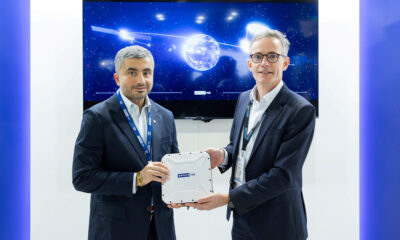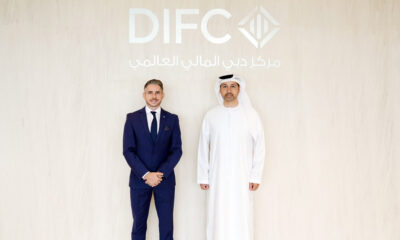News
WhatsApp Update Will Debut AI Voice Mode With 10 Variants
WhatsApp is developing a new feature that will allow users to choose between various Meta AI chat mode voices.

WhatsApp is working on a new feature that will allow users to interact with Meta AI using a variety of voices. Although this feature is not yet available for beta testing, WABetaInfo has revealed that the latest WhatsApp beta update for Android (version 2.24.17.16) includes information about selecting the Meta AI voices.
The upcoming feature will enable users to converse with Meta AI in real-time. Although the chat mode is still under development, current reports indicate that users will be able to choose from ten different voices for Meta AI. At present, this feature is only available on the Android version of WhatsApp. However, it is expected that iOS users will eventually be able to use the Meta AI chat mode too.
It’s important to note that even if you manage to download and install the WhatsApp beta version on your Android device, its functionality will likely be restricted, as it is currently still in the development stage. Screenshots shared by the feature tracker reveal a new voice icon in the Meta AI chat interface, represented by an audio waveform next to the text field.
Upon selecting this icon, a bottom sheet appears with “Meta AI” displayed at the top. In the center, a circular design composed of several bubbles is visible. At the bottom of the sheet, the message “Hi, how can I help?” is shown along with a larger audio waveform icon, indicating that the AI is ready to listen.
Also Read: Top Free AI Chatbots Available In The Middle East
Additional screenshots imply that the Meta AI voice mode will offer users up to ten unique voices to choose between. The differences between these voices are not yet clear, but they may vary in accents, levels of enthusiasm, or even tonal characteristics. However, it’s unlikely that any of the voices will support multiple languages on the update’s initial release.
News
Alienware Just Announced Six New Gaming Monitors
The new models include three QD-OLED and three budget-friendly QHD options, expanding the company’s lineup for all gamers.

Alienware has just updated its gaming monitor lineup with six new additions, including the highly anticipated Alienware 27 4K QD-OLED Monitor. The latest wave of releases is set to reach more gamers than ever, offering high-end QD-OLED displays alongside more budget-friendly options.
The latest displays clearly show that the company is doubling down on QD-OLED with three new models sporting the technology. A redesigned Alienware 34 Ultra-Wide QD-OLED Monitor is also making a return, further refining what is already a fan-favorite display.
A Unified Design: The AW30 Aesthetic
All six monitors feature Alienware’s new AW30 design language, first introduced at CES. The AW30 aesthetic brings a futuristic, minimalist look that unites the entire lineup under a cohesive visual identity.
Pushing QD-OLED Even Further
The refreshed Alienware 34 Ultra-Wide QD-OLED Monitor (AW3425DW) builds on its predecessor’s success with a 240Hz refresh rate (up from 175Hz) and HDMI 2.1 FRL support. It also gains G-SYNC Compatible certification alongside AMD FreeSync Premium Pro and VESA AdaptiveSync, ensuring ultra-smooth performance. With a WQHD (3440×1440) resolution and an 1800R curve, this display enhances immersion for both gaming and cinematic experiences.
For those who crave speed, the Alienware 27 280Hz QD-OLED Monitor (AW2725D) pairs a high refresh rate with QHD resolution, balancing sharp visuals with ultra-smooth gameplay. Meanwhile, the Alienware 27 4K QD-OLED Monitor (AW2725Q) delivers stunning clarity with an industry-leading pixel density of 166 PPI, making it the sharpest OLED or QD-OLED monitor available.
Also Read: Infinite Reality Acquires Napster In $207 Million Deal
Worried about OLED burn-in? Alienware’s entire QD-OLED lineup comes with a three-year limited warranty covering burn-in concerns, offering peace of mind for gamers investing in these high-end displays.
Bringing QHD To A Wider Audience
Alongside QD-OLED, Alienware is also releasing three new QHD gaming monitors aimed at more price-conscious gamers. The Alienware 34 Gaming Monitor (AW3425DWM), Alienware 32 Gaming Monitor (AW3225DM), and Alienware 27 Gaming Monitor (AW2725DM) provide a range of sizes and formats to suit different preferences:
- The Alienware 34 Gaming Monitor (AW3425DWM): An ultrawide (WQHD) option for a panoramic, immersive experience.
- The Alienware 32 Gaming Monitor (AW3225DM): A standard 16:9 panel for a traditional but expansive desktop setup.
- The Alienware 27 Gaming Monitor (AW2725DM): A 27” display offering the same performance in a more compact form factor.
All three gaming monitors feature a fast 180 Hz refresh rate, a 1ms gray-to-gray response time, and support for NVIDIA G-SYNC, AMD FreeSync, and VESA AdaptiveSync to eliminate screen tearing. Additionally, with 95% DCI-P3 color coverage and VESA DisplayHDR400 certification, these displays deliver vibrant colors and high dynamic range for lifelike visuals.
-

 News3 weeks ago
News3 weeks agoSpace42 & Cobham Satcom Launch New Satellite Broadband Terminal
-

 News3 weeks ago
News3 weeks agoRipple Gains DFSA License To Offer Crypto Payments In Dubai
-

 News2 weeks ago
News2 weeks agoAre You Ready For Hong Kong’s InnoEX & Electronics Fair?
-

 News2 weeks ago
News2 weeks agoWizz Air Abu Dhabi Adds Beirut Flights Amid Tourism Revival


















